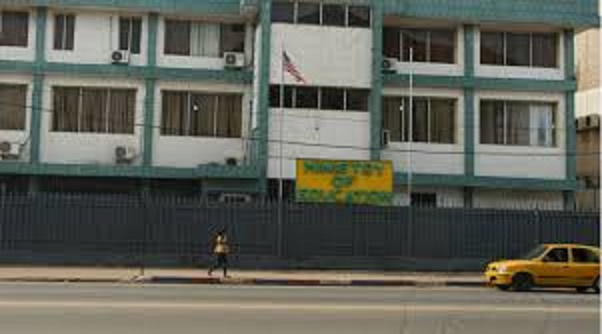Sub-Sahara Africa urged to invest more in education

The Chief Economist at the World Bank Liberia Office Mr. Daniel K. Boakye calls on Sub-Saharan countries to invest more in education to help in reduction or ending poverty.“Far too many children don’t have basic literacy skills; the new analysis undertaken by the World Bank and UNESCO shows that 52 percent of children at or near the end of primary school age cannot read,” he notes.
Mr. Boakye made the observation Thursday, October 17, 2019, at the observance of End Poverty Day, a day which is aim at eradicating poverty from Sub-Saharan countries. The program held at the World Bank Liberia Office in German Embassy Compound, Oldest Congo Town, is celebrated throughout Africa.The End Poverty Day brought together students from various schools here to share their ideas on poverty and how they think it can be reduced.
In introductory remarks, Chief Economist Boakye explains that in absolute number, 270 million children between ages 10-14 are caught in the learning gap, adding that in low income countries, the rate is at 80 percent.
He further discloses that in some Sub-Saharan countries, it is estimated that more than 80 percent children cannot read a single word by Grade 3 level.
“This high rate of learning poverty and slow progress in low and middle income countries is an early warning sign that global education goals are at risk, and threatens efforts to end poverty”, he warns.
According to him, most of the countries that the World Bank works with have various challenges, but the key challenge facing most Sub-Saharan African countries is poverty. “But if we are able to address poverty in Africa, it will go a long way in reducing poverty globally.”
Mr. Boakye defines poverty as lack of basic necessity of life, noting that when you are poor and don’t even have food to eat, it becomes one of the characteristics of poverty. He names other characteristics as access to basic health services, including education, good or safe drinking water, among others.
“Today as part of the agenda in ending poverty, the World Bank is focusing on the importance of access to education, as the way of reducing poverty. It will amaze you to know that among all the key instruments that are needed to reduce poverty, education is considered first priority.”
The Chief Economist says the first thing that every parent, who doesn’t have money needs to do is focus on his or her children’s education, and once it is attained, a person is automatically on his way come out of poverty.
[bsa_pro_ad_space id=1]
“Reason is that a child will study and achieve certificate that will show a particular profession that will bring employment to help the family and others.”
A District Education Officer from Montserrado stresses that survey conducted by the World Bank should be taken into consideration in making sure children acquire reading skills.
“One of our responsibilities as DEO is to monitor our schools and make sure that teachers meet the required standards, so as to give back to the students, because if the teacher is not prepared, he won’t be able to properly teach a student”, the DEO underscores.
“When you cannot read with understanding, it’s not possible to have anything done; people will have to make decision for you, and we don’t want this for our children.”
The Principal of the B.W. Elementary school Ms. Sarah S. Barclay says to enable children acquire better reading skills, she has introduced Early Childhood Development, saying, “When the development of any child is well done, it means the foundation of that child is being built.”By Lewis S. Teh




















